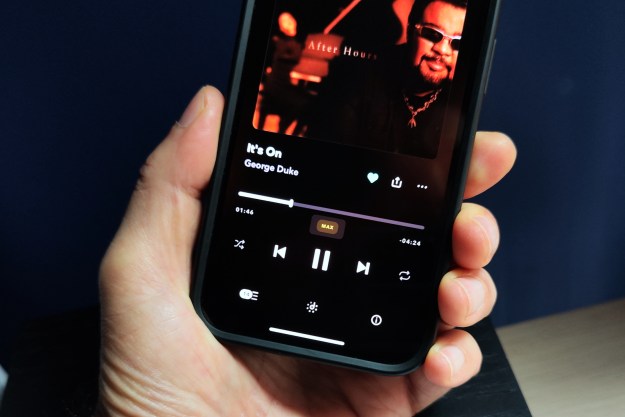
Comcast set the pieces on the board today for a game that it hopes will result in the absorption of Time Warner Cable to create a super media conglomerate. After completing the required Hart-Scott-Rodino notification with the Department of Justice, the company filed the necessary joint Applications and Public Interest Statement with the FCC today, and Comcast Executive Vice President David Cohen will testify before a Senate Judiciary Committee tomorrow to plead his case for the merger.
To outline his defense of the merger that will consolidate an unprecedented amount of power across media lines, from cable holdings and broadband infrastructure, to broadcast and media content control, Cohen took to the Internet this morning in a blog.
In his argument, Cohen attempts to make a case for the merger by outlining several reasons that “Comcast and TWC are better together for millions of customers and businesses.” Cohen raises a litany of proposed benefits in his post to quell concerns from a multitude of parties, including claims that the merger will provide faster Internet speeds (specifically for TWC customers), a “fully upgraded network” with highly reliable and secure service, “robust” VOD services, a commitment to diversity and inclusion, and “the extension of the FCC’s Open Internet rules on network neutrality.”
That last point appears to reference Comcast’s handshake agreement to uphold net neutrality, or fair play online, until 2018 , which may actually be Comcast’s best argument. When the company bought NBC Universal, it agreed to uphold net neutrality as part of the deal. As of now, thanks to Verizon’s recent legal victory, the FCC is unable to enforce basic net neutrality under current rules. The merger would potentially enforce Comcast’s agreement for TWC’s umbrella, adding basic net neutrality for a larger broadband market.
Comcast already holds a lot of keys, and this deal will give it a whole lot more to play with.
However, as pointed out by those who oppose the merger – a coalition of sorts which includes politicians in congress, consumer advocacy groups, competing companies, and Comcast haters across the nation – the merger would appear to put far too much power in Comcast’s hands, and destroy fundamental competition across multiple media markets. In other words, Comcast already holds a lot of keys, and this deal will give it a whole lot more to play with.
The notion of a lack of competition should the merger proceed is not some theoretical notion of capitalism on a broader scale, but a fundamental rule of dollars and cents. As was quoted in a recent DT piece on the subject, Senior Staff Attorney for Public Knowledge John Bergmayer put it very succinctly, “By raising the costs of its rivals and business partners, an enlarged Comcast would raise costs for consumers, who ultimately pay the bills. It would be able to keep others from innovating, while facing little pressure to improve its own service.”
That’s the fear from multiple parties, and that’s what consumers will likely face if the merger proceeds. With so much power across industries, why should Comcast innovate or upgrade when the majority of its subscribers have no viable alternative? Meanhwile, the deal could send the already high prices of American broadband access skyrocketing from the competition, while Comcast essentially controls the price. Not great.
By the numbers
For those who haven’t been following just what the merger of the two largest MSOs will mean in actual numbers, here’s a quick breakdown of the current holdings of both companies, the money changing hands, and what a merger will mean.
- A combination of around 34 million video subscribers, or about 28 percent of the nation’s subscribers
- A combined 31 million broadband subscribers, or between 34 and 40 percent of all broadband access
- A spin-off of 3 million of Comcast’s current subscribers to smaller MSOs
- A much larger geographic reach, expanding Comcast’s current heavy presence on the West Coast, Pennsylvania, and Florida to TWC’s New York, Ohio, and Texas territories
- $45.2 billion in stock and cash for the sale
- A proposed buy-back by the conglomerate of around $10 billion in Comcast stock
Bad blood
Further worriesome, is Comcast’s notoriously bad customer service ratings. According to Business Insider, Comcast’s ASCI (American Customer Satisfaction Index) scores from 2013 were woefully low, with consumers ranking the company the third lowest in phone service, the second lowest TV service, and the bottom of the barrel of Internet Service Providers. And in what seems like an amazingly unlucky coincidence, on the same day of its filing with the FCC this morning, Comcast was named the Worst Company in America by the Consumerist – the second time the company has garnered the dishonor. Ouch.
What happens in the future as Comcast proceeds will likely shape the video and broadband landscape for years to come. At a time when the entire multi-media paradigm is in flux, this kind of consolidation is troubling. We’ll find out just how much influence Comcast has as it prepares its main defense before the Senate committee tomorrow.
What do you think about the merger? Has Cohen convinced you? Let us know in the comments.
[Update: this article was supplemented to reflect Comcast’s new title from the Consumerist as ‘Worst Company in America’, 4/8/2014]


